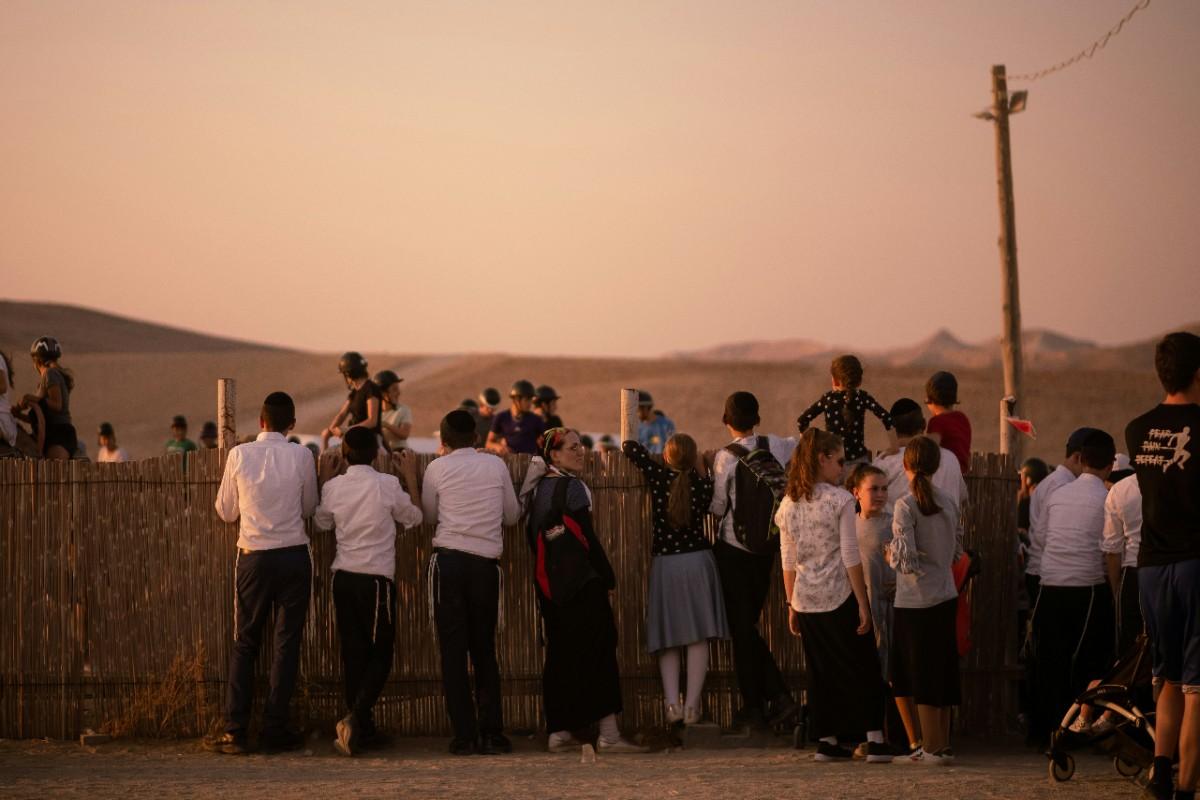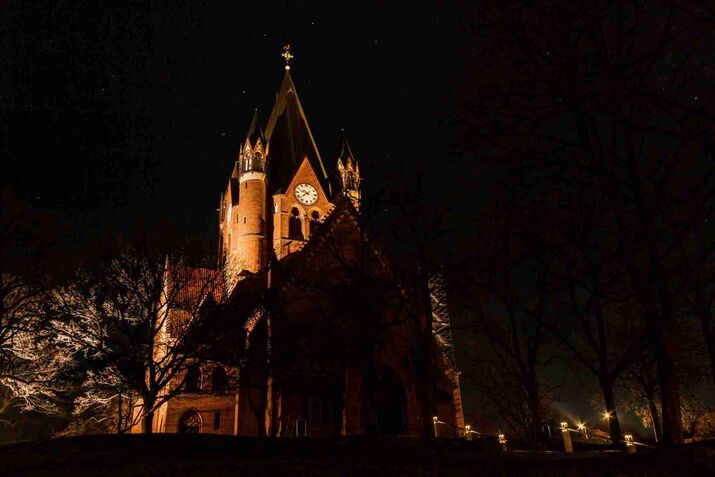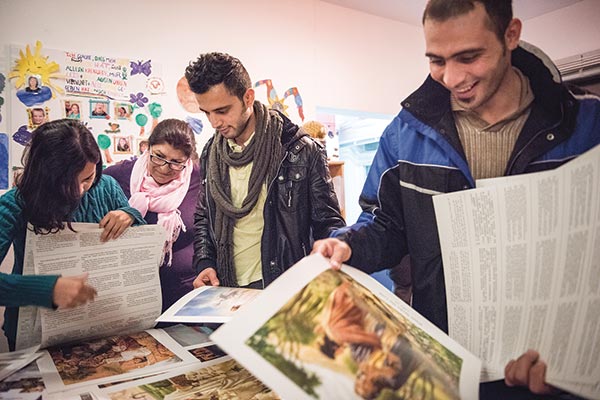From Religion to Relationship: A Christian View of Islam
In a region shaped by Islam, God is revealing Himself in unexpected ways. Discover how the message of a loving Father is transforming hearts across the Middle East, replacing religion with relationship and fear with freedom.

A Faith That Shapes a Region
Across the Middle East, Islam is more than religion — it’s culture, law, and identity woven together. It shapes how people pray, how families live, and how nations see themselves. With nearly two billion followers worldwide, Islam is one of the most powerful forces in human history.
For Christians seeking to share the gospel here, that reality can feel daunting. But for NEO’s teams and for believers like Nadim Costa, president of NEO US, it’s also where God’s love is moving in quiet, redemptive ways.
“The call isn’t to replace one religion with another,” Nadim often says.
“It’s to invite people into a relationship with a Father who loves them.”
Islam in Brief
Islam began in the 7th century under the Prophet Muhammad and centers on two key ideas: oneness (that there is no god but Allah) and submission (that humanity’s purpose is to obey His will).
Its Five Pillars —confession, prayer, fasting, almsgiving, and pilgrimage — give structure to life and community.
For many Muslims, these rituals are acts of devotion, discipline, and belonging. But for some, they also leave a quiet question unanswered: Can God truly be known — not only obeyed?
That question has become the starting point for countless stories of transformation across the Middle East.
Religion or Relationship
Growing up amid war in Lebanon, Nadim understood religion as a duty. He saw people attend church or mosque faithfully but live without peace. “If all it takes is showing up, paying tithes, and following rules,” he once asked, “why should I die for that?”
In his experience, Islam mirrors this same tension — a system that commands submission but rarely offers intimacy. “Islam means submission, not relationship,” he explains.
But the gospel reveals something different. Where religion demands performance, Jesus offers presence.
Christianity isn’t about earning God’s love — it’s about living in it.
For Nadim and for many believers across the region, that distinction changes everything.
Honor and Shame: The Hidden Weight
In much of the Middle East, identity is collective. To belong is to honor your family; to stand apart can bring shame.
When someone from a Muslim background decides to follow Jesus, it’s not just a private choice; it’s a public rupture. Families grieve, communities reject, and in some cases, violence follows.
That’s why so many conversions happen quietly in secret Bible studies, whispered prayers, or even dreams. God meets people where no one else can reach them. One NEO leader describes it this way: “Dreams and visions are how God bypasses fear. He speaks in ways that honor the person but challenge the system.”
The Father Who Changes Everything
Perhaps the most radical revelation for Muslims who encounter Christ is not a doctrine — it’s a relationship.
In Islam, God (Allah) is almighty and merciful but distant. The Qur’an never calls Him “Father.” In Christianity, Jesus does constantly. He calls His followers children, not servants. For many Muslims, hearing this for the first time brings tears. Nadim recalls countless encounters where men and women wept upon realizing that God sees them — not as subjects, but as sons and daughters. It replaces fear with love, duty with intimacy, and submission with belonging.
“For years, I was a slave,” said one Yemeni refugee who encountered Christ in a dream. “Now, I am a son.”
Stories of Transformation
A Syrian Man’s Dream
In Syria, a man raised in a devout Muslim family began having recurring dreams of Jesus. He later joined a Discovery Bible Study supported by NEO, where he first heard that God is a Father. For the first time, he felt loved rather than judged.Today, he quietly leads his family in reading Scripture, living out a faith rooted in relationship.
An Egyptian Student’s Search
In Cairo, a university student noticed the joy and authenticity of Christian classmates. Their compassion intrigued him more than their theology. When he learned about the heart of God, he said, “I found what I’d been searching for — love without condition.”
A Refugee’s Freedom
In Yemen, where public Christianity is forbidden, a refugee encountered Jesus in a dream. When he later met a local believer, he said, “I thought I was meeting another man — but I was meeting hope.” His testimony spread quietly among others who were hungry for the same truth.
Barriers and Bridges
Engaging Muslims with the gospel is complex and costly.Conversion can lead to loss of family, community, or even life. Religion is often tied to ethnicity — to be Arab is to be Muslim. Leaving Islam can feel like betraying one’s heritage.
But NEO’s work has shown that relationship, not argument, is what opens hearts.
- Build relationships, not debates. Love disarms where logic cannot.
- Model compassion. Acts of mercy are living sermons.
- Understand honor and shame. Approach with empathy, not confrontation.
- Reveal God as Father. This truth meets the deepest longing for belonging.
Faith Lived, Not Argued
Christian-Muslim dialogue has a long and complicated history — marked by both pain and progress. But the new story being written today isn’t one of debate; it’s one of embodied faith.
In homes and refugee camps across the Middle East, believers are quietly living out the gospel — listening, serving, and loving without condition. They are showing that Christianity is not a religion of superiority, but a relationship of grace.
A New Way Forward
Understanding Islam is not about comparison — it’s about compassion. To love Muslims is to listen to their stories, respect their culture, and reflect a God who longs to be known as Father.
For Nadim and NEO’s teams, this is the heartbeat of missions: not to win arguments, but to win trust. Not to replace one system with another, but to invite people into the embrace of a Father who calls them home.
Because when that revelation takes root, everything changes — for individuals, for families, and for nations. “The story of the Middle East isn’t just about conflict,” Nadim says. “It’s about a Father searching for His children.”
Light is breaking through the walls built up in the religion, and love is rewriting the story.
Continue the Conversation: Loving Across Faith Lines
If this topic stirred something in you, we invite you to go deeper. Recently, NEO president Nadim Costa joined two podcast conversations exploring how followers of Jesus can love and understand people from different faith backgrounds—especially within Muslim communities. His reflections go beyond theology to reveal a way of life marked by humility, empathy, and genuine friendship.
🎧 Listen here:
In both episodes, Nadim explores the true meaning of building bridges between Christians and Muslims, transitioning from religious differences to personal relationships and from debate to mutual understanding. Each conversation offers a glimpse into how love can transform even the most divided spaces.

.webp)

